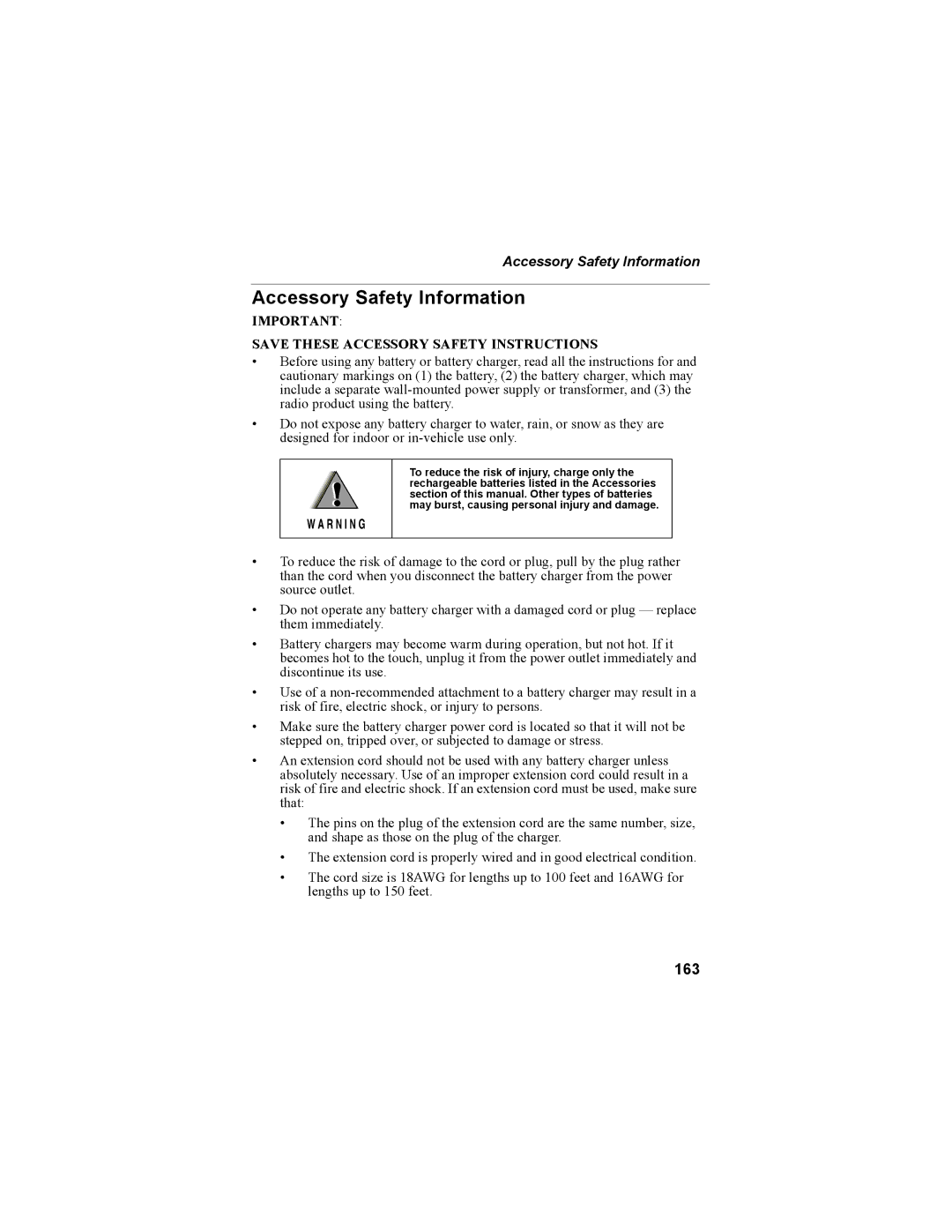
Accessory Safety Information
Accessory Safety Information
IMPORTANT:
SAVE THESE ACCESSORY SAFETY INSTRUCTIONS
•Before using any battery or battery charger, read all the instructions for and cautionary markings on (1) the battery, (2) the battery charger, which may include a separate
•Do not expose any battery charger to water, rain, or snow as they are designed for indoor or
!
W A R N I N G
To reduce the risk of injury, charge only the rechargeable batteries listed in the Accessories section of this manual. Other types of batteries may burst, causing personal injury and damage.
•To reduce the risk of damage to the cord or plug, pull by the plug rather than the cord when you disconnect the battery charger from the power source outlet.
•Do not operate any battery charger with a damaged cord or plug — replace them immediately.
•Battery chargers may become warm during operation, but not hot. If it becomes hot to the touch, unplug it from the power outlet immediately and discontinue its use.
•Use of a
•Make sure the battery charger power cord is located so that it will not be stepped on, tripped over, or subjected to damage or stress.
•An extension cord should not be used with any battery charger unless absolutely necessary. Use of an improper extension cord could result in a risk of fire and electric shock. If an extension cord must be used, make sure that:
•The pins on the plug of the extension cord are the same number, size, and shape as those on the plug of the charger.
•The extension cord is properly wired and in good electrical condition.
•The cord size is 18AWG for lengths up to 100 feet and 16AWG for lengths up to 150 feet.
